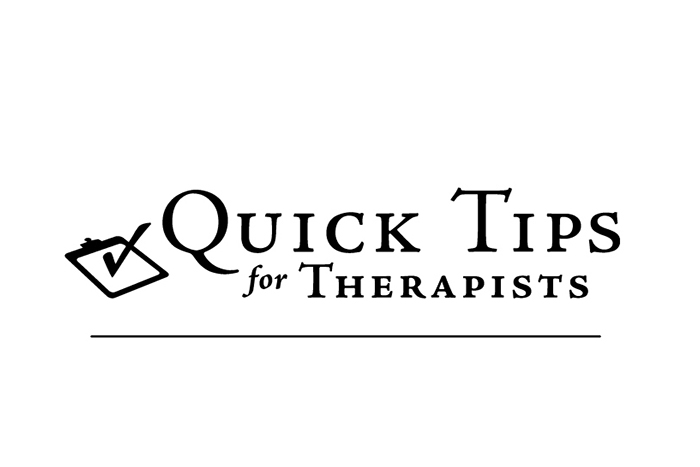By Lucie Hemmen, PhD
Once teens are familiar with the concept of the inner critic, you can help them monitor and redirect their negative thoughts and self-talk. Here are some tips to help teens build skills to defeat, or at least soften, the inner critic.
In session, do an inner critic check-in. Ask your client what she’s noticed about her inner critic in the past week. This will strengthen her ability to self-observe. Because she is now reporting the activity of her inner critic to you, she will be more aware of negative thoughts between sessions.
Identify themes. Many teens struggle with negative thoughts that fall under the following headings:
- I’m not good enough
- If people really knew me…
- I’m the only one who…
- I’m on the outside looking in
Help your client connect thoughts to themes, which give her more mastery and more distance. Clients can make top-three lists of their most common recurring negative thoughts and write better-feeling thoughts on colorful index cards. Don’t overshoot by being too positive, or clients will not buy it. Make sure they can at least hesitatingly endorse the improved thoughts.
Example: “Everyone in trig gets it but me. I am the dumbest one in the class.”
Better-feeling thought: “I can get through trig and it’s okay to get extra help.”
Have clients take the cards home and place them in strategic places. Some teens put them on their wall or mirror, or in drawers. Have them practice thinking those thoughts and noticing how the i
mproved thoughts impact their emotions and ability to cope and move forward.
 Lucie Hemmen, PhD, is a licensed clinical psychologist who has worked for over twenty years to strengthen communication between teens and parents. She is the author of several books for teens and parents, including Parenting a Teen Girl and The Bullying Workbook for Teens. The mother of two teen daughters named Marley and Daisy, Hemmen lives and practices in Santa Cruz, CA.
Lucie Hemmen, PhD, is a licensed clinical psychologist who has worked for over twenty years to strengthen communication between teens and parents. She is the author of several books for teens and parents, including Parenting a Teen Girl and The Bullying Workbook for Teens. The mother of two teen daughters named Marley and Daisy, Hemmen lives and practices in Santa Cruz, CA.
Sign up today!


 2024 Peace Playbook: 3 Tactics to Avoid Clashes with Your Partner
2024 Peace Playbook: 3 Tactics to Avoid Clashes with Your Partner